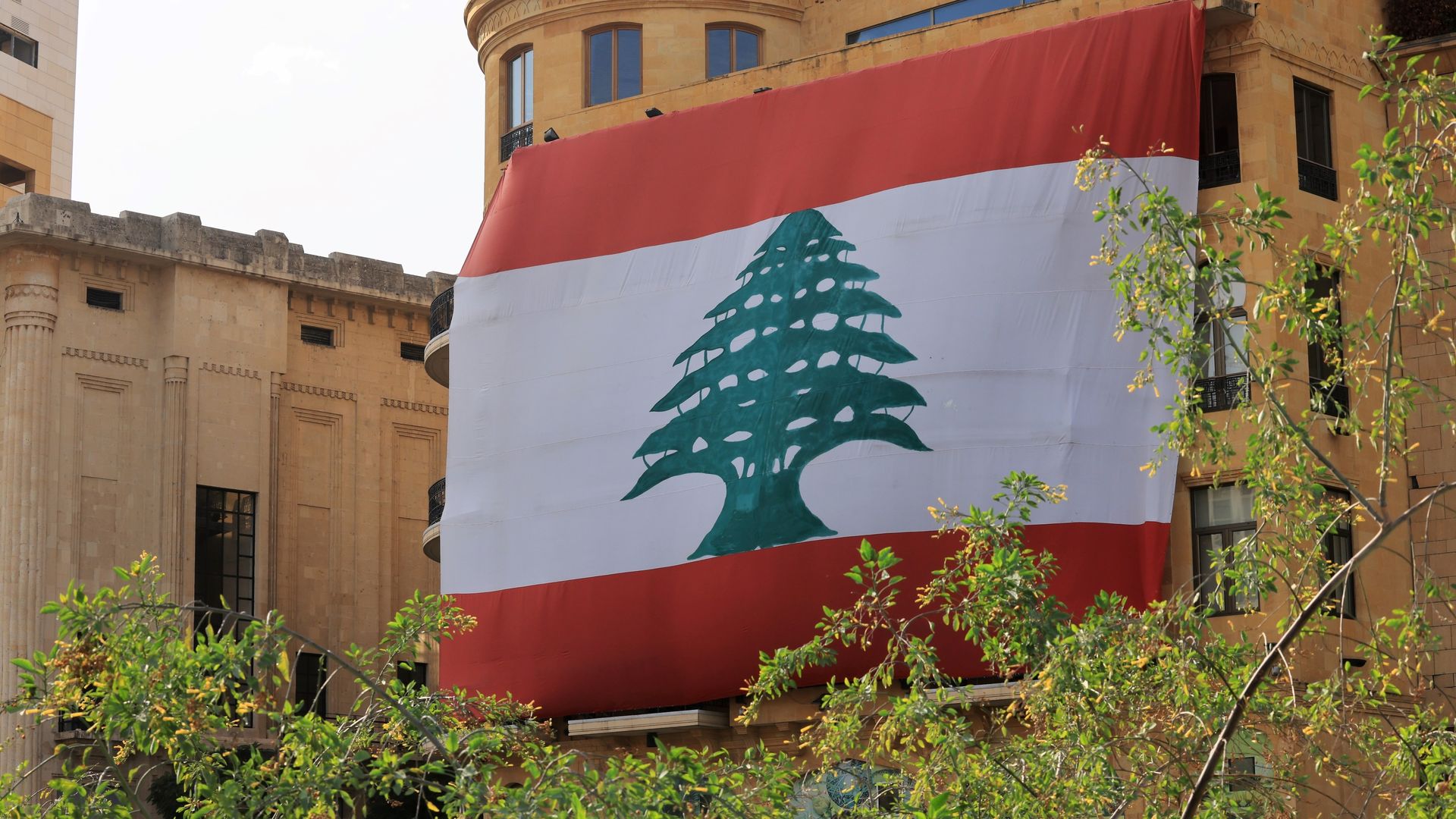U.S. urges Lebanon to elect president after 6 months without a leader
Add Axios as your preferred source to
see more of our stories on Google.

A Lebanese flag in Beirut. Photo: Liu Zongya/Xinhua via Getty Images
BEIRUT — The U.S. this week urged crisis-hit Lebanon to move “expeditiously” to elect an "appropriate" president six months after the last head of state departed the presidential palace.
Why it matters: Divisions between the different regional and world powers have stalled the country's presidential election, compounding the country's growing economic crisis that has plunged millions into poverty.
- Lebanon’s politics are split between an Iran-Syria alliance that supports Hezbollah versus a Saudi-backed bloc that is allied with the U.S. and much of the West.
Catch up quick: Lebanon’s divided parliament has failed multiple times to elect a president since former President Michel Aoun left the post in October.
- Hezbollah — an Iran-backed militia group and Lebanon’s most powerful political actor — has nominated Marada Movement leader Sleiman Frangieh as its preferred presidential candidate.
- But Frangieh, who is also a close friend of Syrian President Bashar al-Assad, does not have the necessary backing of the largest Christian blocs in Lebanon’s parliament, nor the support of the international community.
- The top presidential candidates backed by parties opposed to Hezbollah include Lebanon’s army commander Gen. Joseph Aoun and Zgharta MP Michel Mouwad.
The big picture: The election of a president in Lebanon “is always the work of foreign powers," Hilal Khashan, a professor of political science at the American University of Beirut, told Axios.
- Diplomats from the U.S., Saudi Arabia, France, Qatar, and Egypt convened in Paris in February to discuss Lebanon’s political crisis, but they came to no explicit agreements or conclusions on the presidential election.
- Iran has established a chokehold over the country through Hezbollah’s growing influence. The group's consensus is required for any decision on Lebanon’s future president. Iran’s foreign minister visited Beirut last week and said his country will accept any president chosen by consensus.
What they're saying: The Biden administration on Monday weighed in on the presidential election, saying it "is the time for action to select appropriate leadership and save the country from further disaster."
- The statement by State Department spokesperson Matthew Miller didn’t specifically name any of the candidates but stressed the need “to select appropriate leadership” who can unite the country and lead reforms to save Lebanon’s economy.
- “Lebanon needs a president free of corruption who can … advocate for transparency and accountability and put the interests of Lebanon’s people first," Miller said.
Between the lines: Hezbollah leader Hassan Nasrallah has previously announced that whoever is selected as the next president should stand up to the U.S., the ally of the militant group’s nemesis, Israel.
- When asked on Tuesday if Miller's statement was a signal that the U.S. opposes the pro-Hezbollah Frangieh, deputy State Department spokesperson Vedant Patel said, "We are not attempting to pick a candidate or put our finger on the scale for anyone one way or the other."
Meanwhile, France has been criticized by Lebanon’s anti-Hezbollah politicians for allegedly supporting Frangieh to serve its “common interests” with the Shiite group.
- During Frangieh’s first visit to Paris last month, France reportedly did not ask him to withdraw from the race, but rather to continue working and offer guarantees to Saudi Arabia.
- France, however, has not publicly backed a candidate.
What to watch: The key to Lebanon’s election of a president is an agreement between the Iranians and the Saudis, Khashan said.
- The recent Saudi-Iran rapprochement might open a door to a political settlement but will take time, Khashan noted. The Saudis have other regional priorities to address first, like the war in Yemen.
- The Saudis have been pushing for the election of Gen. Joseph Aoun. Khashan said they are still not willing to support a "pro-Iranian president."
